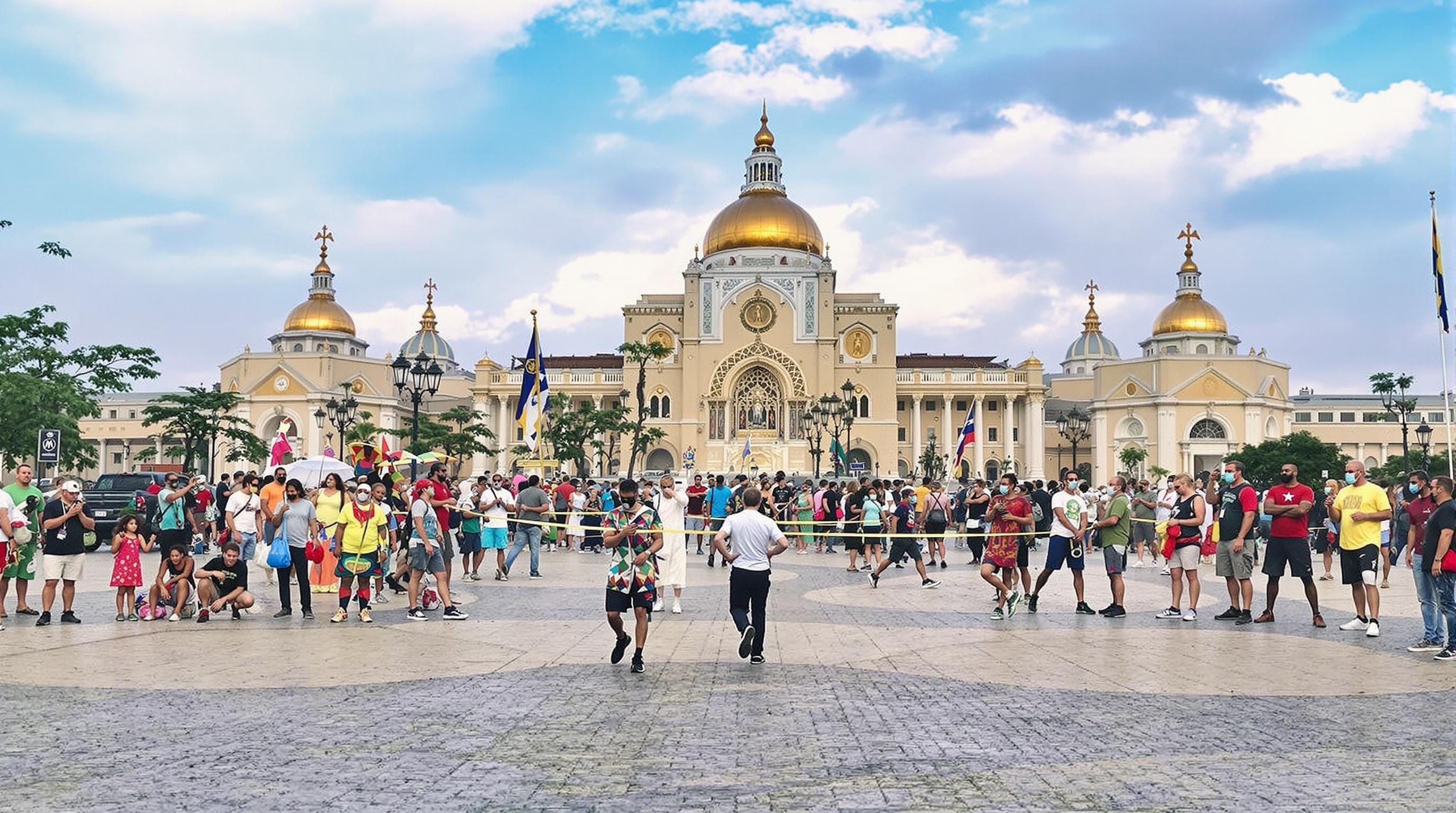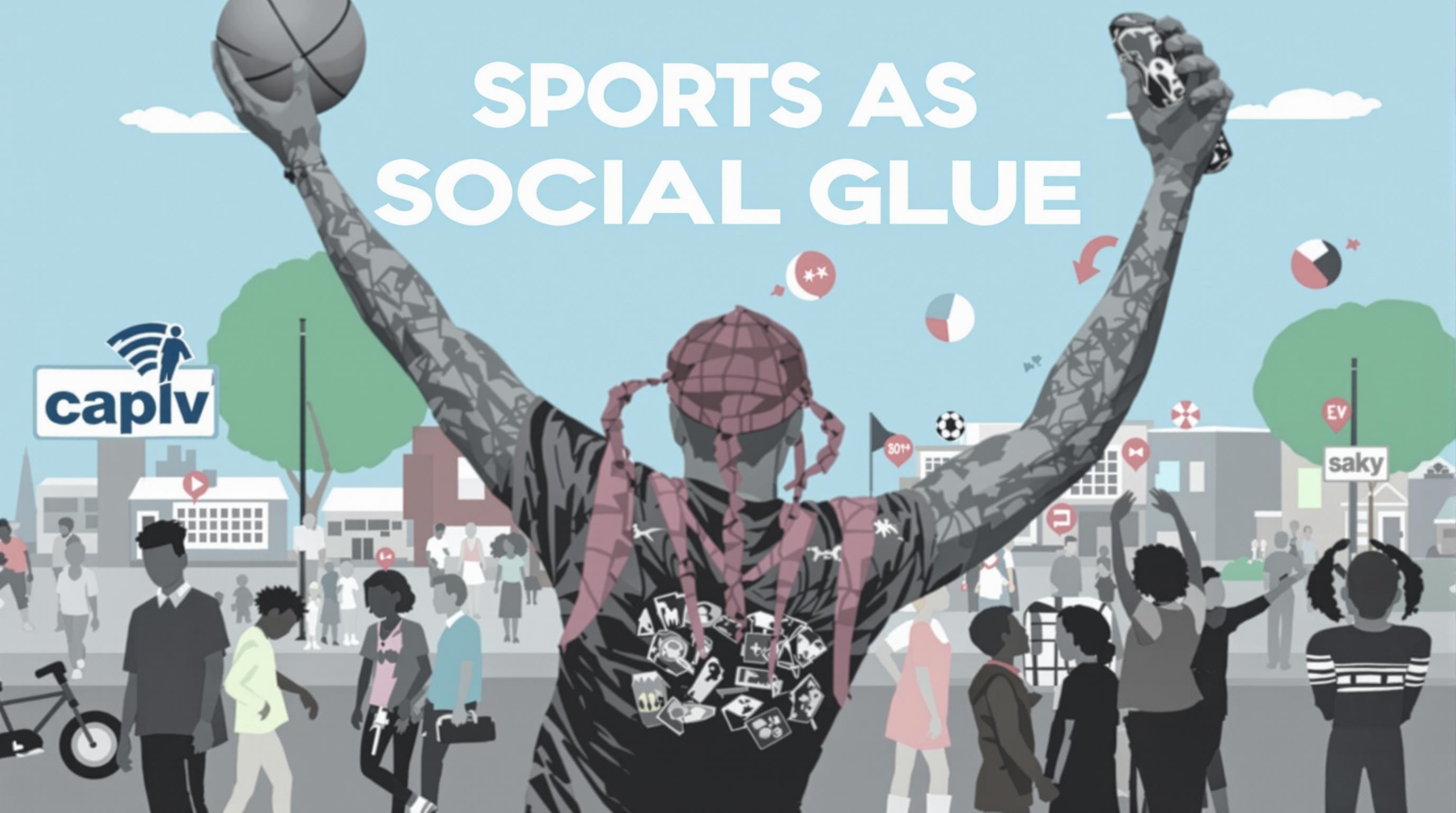Related Articles
- Sporting Rituals: The Curious Connections Between Athletic Events and Ancient Traditions of Worship and Community Bonding
- Game On: The Surprising Influence of Sports on Fashion Trends and Personal Identity in Youth Culture
- Rituals and Rites: How Competitive Sports Influence Cultural Practices in Spiritual and Indigenous Communities
- Sports as Social Glue: Examining the Bond Between Athletic Rivalries and Neighborhood Integration
- Spectacles of Strife: How Weather Patterns Disrupted Historic Sports Events and Changed Athletes' Fortunes
- Bizarre Beginnings: The Unwritten Rules of Quirky Sports and Their Role in Shaping Modern Athletics
Sporting Rituals: The Curious Connections Between Athletic Events and Ancient Traditions of Worship and Community Bonding
Sporting Rituals: The Curious Connections Between Athletic Events and Ancient Traditions of Worship and Community Bonding
Sporting rituals deeply interweave the fabric of athletic events and echo ancient traditions of worship and community bonding, revealing far more than just competition. This article explores these curious connections, highlighting examples, statistics, and stories that bridge the gap between joy, devotion, and human connection.
The Essence of Ritual in Sport
Rituals are ubiquitous in sports, often serving to unify communities around shared experiences. Whether chanting a team's anthem before the big game or painting faces in team colors, these rituals are reminiscent of ancient rites designed to invoke favor from the gods or celebrate community achievements.
Anecdotes from Ancient Games
Historically, events like the ancient Olympic Games were imbued with profound significance. Competitors would offer sacrifices to Zeus for victory, embodying the spirit of competition intertwined with divine favor. This tradition of melding sport with spirituality has echoes today, from the Super Bowl to the UEFA Champions League, where both players and fans partake in ceremonial acts that remind us of a greater collective purpose.
Statistics: The Power of Unity
According to a 2018 study published in the Journal of Sport and Social Issues, over 70% of sports fans believe that traditions, such as rituals or celebrations, enhance their overall experience of the game. These statistics highlight how ritualistic elements foster a sense of belonging and identity among fans, which is crucial for community bonding.
Embodied Connections: Health and Community
One cannot mention sporting rituals without recognizing their impact on physical health and social integration. Engaging in rituals can notably increase motivation. A 2019 article from the Association for Psychological Science noted that rituals could enhance performance in athletes due to the psychological benefits derived from feeling part of a larger entity.
More Than Just Fans
Consider the fervor of an NFL game. Fans don brightly colored jerseys, gather in groups, and chant for their teams, creating an environment akin to the vibrant festivals of ancient cultures. Such communal gatherings foster friendships that extend beyond the game, demonstrating how sporting events serve as modern-day temples of social interaction and community bonding.
The Humor of Superstitions
And speaking of rituals, we'd be remiss not to mention the humorous side of superstitions in sport! Joe, 32, a dedicated Chicago Cubs fan, once wore the same socks during the whole 2016 season, claiming they were "lucky." After the Cubs' World Series win that year, he jokingly made them his “socks of destiny.” While the science might not support the link between socks and sporting triumphs, the shared laughter and camaraderie within his circle certainly solidified their community connection!
Persuasive Perspectives: Why Rituals Matter
But what’s the actual value of these rituals and traditions? Some may argue that they are merely archaic remnants from the past. However, I argue they provide a psychological anchor in an unpredictable world. In today’s fast-paced and often fragmented society, where individualism reigns supreme, sporting rituals remind us of our belonging and shared identities. The people of your hometown can rally around the local high school football game, binding neighbors and friends in potential new relationships.
The Divine in the Details
Take for instance the Mexican celebration of "Día de Los Muertos," which incorporates elements of community and respect for ancestors. While not directly connected to sports, it represents a broader category of rituals in which cultural pride and collective participation become vital. Imagine a local soccer game during festival week, where altars adorned with photos of dearly departed players and fans unite everybody in joy, sorrow, and reverence for the game that bonds them.
Global Influence: Sporting Events as Cultural Festivals
In today's global landscape, large sporting events such as the FIFA World Cup or the Olympic Games transform into mega festivals of culture and unity. These events showcase not only athletic prowess but also rituals from around the world, creating a melting pot of cultures. For instance, the opening ceremony of the Olympics is a modern-day procession reminiscent of ancient rituals, where nations parade together, celebrating not just competition but the shared human experience.
Case Study: The Rituals of Fan Culture
In Argentina, football isn't just a game; it’s a religion. Stadiums like La Bombonera become cathedrals, filled with passionate followers who light flares and chant hymns. The "La 12," Boca Juniors' renowned fan base, practices intense rituals that include pre-game gatherings, passionate chants, and elaborate choreographies. This rite of passage serves to strengthen bonds, like those in an ancient council meeting under the watchful eyes of their deities—a vivid display of collective identity and loyalty.
Rituals in the Face of Adversity
In times of crisis, rituals become lifelines. Consider how, during the COVID-19 pandemic, sports rallies and gatherings vanished, but substitute forms of rituals emerged. Fans turned to virtual watch parties, live tweets, and fan art—reinventing community gatherings in new formats. This adaptability echoes past societal adaptations, ensuring the spirit of bonding remains alive, as ancient societies would gather for collective rituals even in the darkest times.
Reflections and Future Directions
Looking forward, we must reflect on the significance of rituals in both sports and society. As we progress into a more digital world, new forms of rituals will emerge. Whether through augmented reality experiences during a game or the rise of social media fan rituals, the essence of connection remains unchanged: the drive to belong and share experiences with others in our sporting communities.
Conclusions: The Human Spirit and Connection
In conclusion, sporting rituals play a crucial role in our lives, connecting us to ancient traditions of worship while forging community bonds in the modern world. As we continue to innovate and create new ways to engage with sports, let us not forget the deep-seated roots of these practices. After all, at the heart of every game, every chant, and every gathering lies the shared essence of humanity—our desire to connect, celebrate, and create lasting memories together.
So, whether you’re painting your face for the next game or igniting rituals of your own, remember that you’re joining in a tradition as old as time itself. So go ahead, cheer loudly and partake in those quirky little rituals—because in the grand scheme of things, it’s all about the love for the game and the joy of community!




